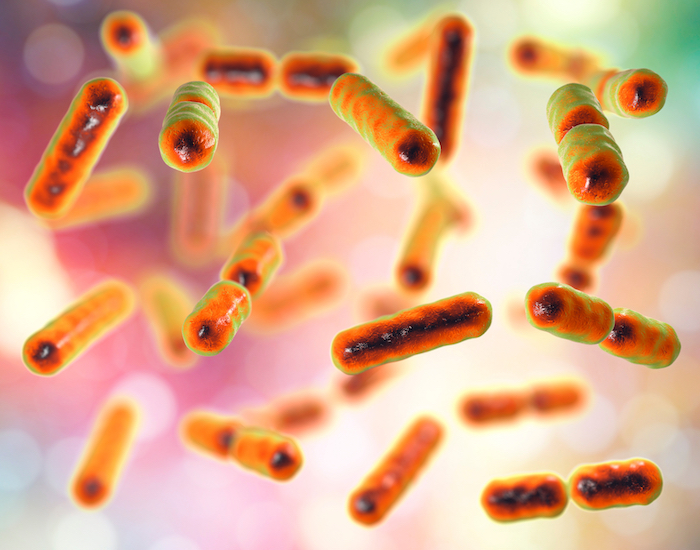 Researchers have discovered a unique bacteria in the gut that may be responsible for triggering rheumatoid arthritis (RA) in people already at risk for the autoimmune disease.
Researchers have discovered a unique bacteria in the gut that may be responsible for triggering rheumatoid arthritis (RA) in people already at risk for the autoimmune disease.
Kristine Kuhn, MD, PhD, led a team of researchers from the University of Colorado School of Medicine that helped to identify people at risk for RA based on antibodies that can be present in the blood for many years before diagnosis.
“When they looked at those antibodies, one is the normal class of antibody we normally see in circulation, but the other is an antibody that we usually associate with our mucosa, whether it be the oral mucosa, the gut mucosa, or the lung mucosa. We started to wonder, ‘Could there be something at a mucosal barrier site that could be driving RA?'”
Discovering a New Bacterium
The CU researchers, working closeley with scientists from Stanford University, took the antibodies created by immune cells from individuals who were at risk for the disease and mixed them with the stool samples of the at-risk individuals to find the bacteria that were tagged by the antibodies.
To further test their hypothesis, the researchers used animal models to host the newly discovered bacteria.
Those experiments showed that not only did the bacteria cause the animal models to develop the blood markers found in individuals at risk for RA; but some of the models showed development of full-blown RA as well.
“Our collaborators confirmed that the T cells in the blood of people with RA will respond to these bacteria, but people who are otherwise healthy do not respond to these bacteria” Kuhn says.
“Through studies in humans and animal models, we were able to identify these bacteria as being associated with the risk for developing RA. They trigger an RA-like disease in the animal models, and in humans, we can show that this bacterium seems to be triggering immune responses specific to RA.”
A New Target for RA
If the unique species of bacteria is indeed driving the immune response that leads to RA in individuals already at risk for the disease, Kuhn says, it might be possible to target the bacteria with medication to prevent that response from happening.
“The next thing we want to do is identify, in larger populations of individuals at risk for RA, if these bacteria correlate with other genetic, environmental, and mucosal immune responses, and then ultimately, the development of RA,” Kuhn says.
“Then we could say, ‘This is a marker that’s useful in helping predict who will go on to develop RA,’ and apply prevention strategies. The other opportunity there is that if we can understand how it is triggering these immune responses, we might be able to block the bacteria’s ability to do that.”
The research took five years to conduct and analyze, Kuhn says, helped along by individuals who discovered they were at risk for RA and volunteered to support the research effort. Eventually the researchers want to examine exactly how the bacteria triggers the immune response, as well as different methods of preventing the reaction from happening.
“There are a lot of different technologies that are just starting to come out that could selectively target a bacterium in the gut microbiome, for example, to prevent it from having immunogenic effects on the host,” she says.
“For a long time, people have thought that antibiotics could be a useful therapy for RA, but rather than the sledgehammer effect of a traditional antibiotic that’s going to wipe out a large group of bacteria, we might be able selectively target this bacterium or its effects.”
Source: Meagan E. Chriswell, Adam R. Lefferts, Michael R. Clay, et al. Clonal IgA and IgG autoantibodies from individuals at risk for rheumatoid arthritis identify an arthritogenic strain of Subdoligranulum. Science Translational Medicine, 2022; 14 (668) DOI: 10.1126/scitranslmed.abn5166











